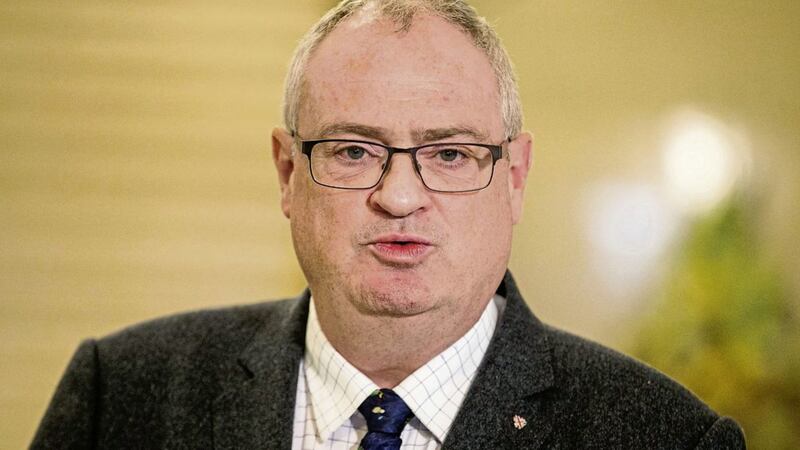I once asked Ian Paisley had he ever thought of just infiltrating and taking over the Ulster Unionist Party at the beginning of the 1970s, rather than starting his own party and spending years in the electoral and political doldrums.
He thought for a few minutes, admitting to me that he had never been asked the question before: "It's a good question." He thought for another minute or so and then told me that while the idea had very fleetingly crossed his mind he had concluded that the UUP was too difficult to lead, post the collapse of Stormont in 1972, because there were too many factions and ginger groups.
In the spring of 2004, over lunch with Jim Molyneaux, the party's leader from 1979-1995, we talked about what he described as David Trimble's 'reckless destruction' of the party. I asked him how he had kept all of the various factions within the party under control while he was leader. He smiled that odd little smile of his and his eyes twinkled: "I talked to all the factions and mavericks on a regular basis and when they left the room they always believed I was on their side. David's problem was that he picked a side and waged war with competing factions. It was never going to end well."
At the moment the UUP has no MPs, no MEP, only 10 MLAs (just 1 out of 20 in Belfast) and just 2 councillors on Belfast City Council (although I think one of those is presently suspended). But it retains its splits and factions. It has a liberal wing and a wing which sits much closer to the DUP's view on socio/moral issues like abortion and same-sex-marriage. It has a wing which voted Remain (and still wants a very soft Brexit, or none at all) and another wing which would be reasonably content with a hard outcome.
It has a wing which would rather not have any electoral pacts/arrangements with the DUP and a wing which would be happy enough for permanent arrangements. It has a wing which thinks that closer relationships with the SDLP makes sense and a wing which thinks 'Nesbitt's flirtation with Eastwood' cost them votes and seats in the 2017 Assembly election. And let's not even start on the cultural/political differences between the rural and urban wings.
Whoever takes over the leadership on November 9 (and it looks like Steve Aiken; although nominations don't close until next Wednesday at 4pm) has to find a way of bringing all those wings together. Ending and then reversing a drift of votes to Alliance is also high on the agenda. And there's also the pesky matter of an election in the next few weeks, when a decision will have to be made on the equally pesky matter of a potential pact with the DUP. And he may just have made things a little more difficult with his promise to make the UUP an unambiguously Remain party.
A recent study of the party by Professor Jon Tonge and others (The Ulster Unionist Party, Country Before Party?) indicated that almost 60 per cent of members favoured electoral pacts/alliances with the DUP for Westminster elections and 'when it suits us.' Another 15 per cent wanted both parties to merge. Those figures suggest it would be a very bold leader who would rule out pacts and go it alone.
Molyneaux also reminded me of Margaret Thatcher's reply to a question about how she dealt with her internal critics: "I keep winning elections." He did the same thing. Every one of his successors, Trimble, Empey, Elliott, Nesbitt and Swann presided over an ongoing loss of seats and votes. The only question a new leader must answer is a brutally simple one: can you gain votes, win seats and halt the decline?
I think the only piece of advice worth offering is this: avoid mixed messages and don't dither on key decisions. It doesn't matter how well organised and disciplined the party may be on the inside; if it doesn't have thought-through strategies, a clear, unambiguous message and an equally clear position on role, relevance, purpose and direction, then it is going nowhere.
And make a final decision about the DUP: either do a deal with them or remove yourselves from their orbit altogether. Riding two electoral horses isn't working for you.








